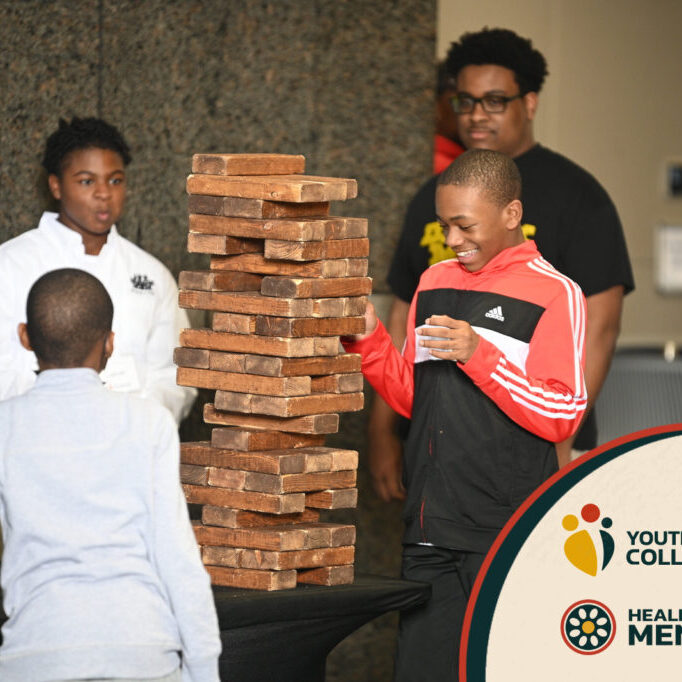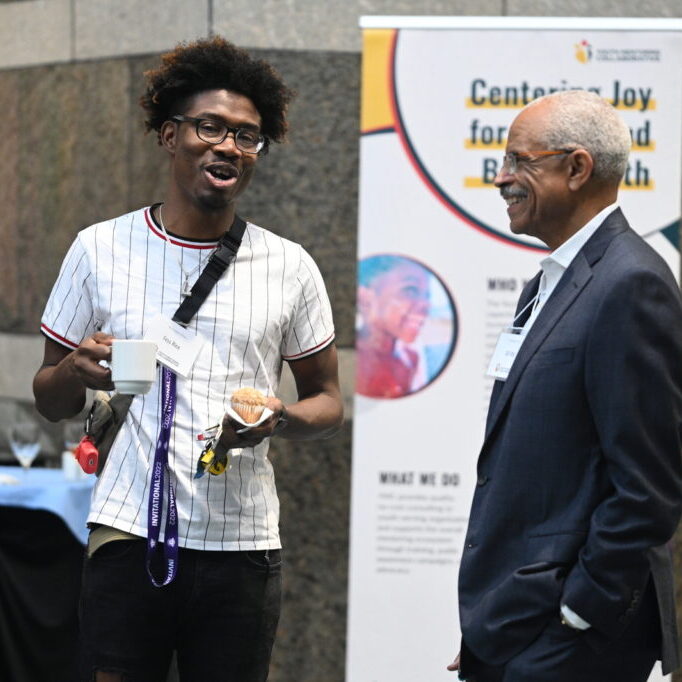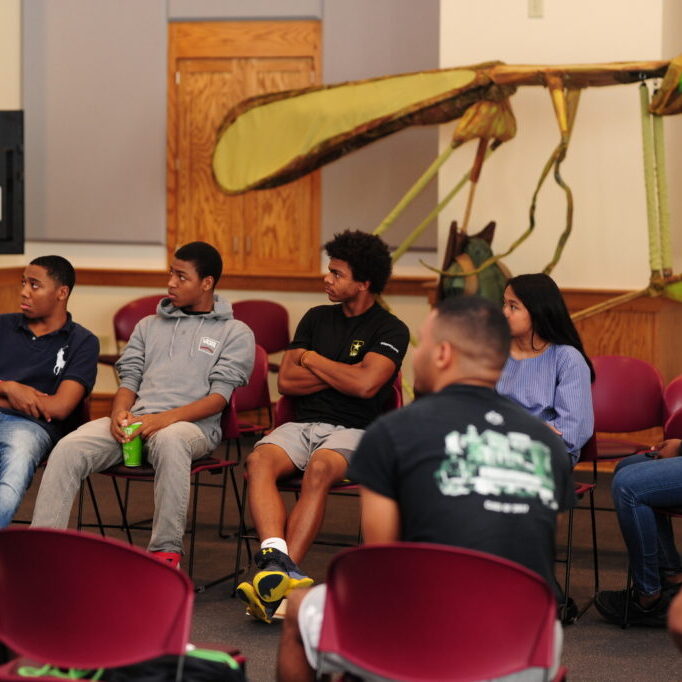February is Black History Month, a time to celebrate the lives of past and present Black community members, organizations, authors, artists, musicians, filmmakers, and scholars; and to recognize the impacts of structural and systemic racism on our country.
The COVID-19 pandemic has only exacerbated the effects of structural racism and inequality on our Black and Brown youth. "Seventy-four percent of Black youth are worried about the effect COVID-19 may have on their family’s finances... Due to occupational segregation, a disproportionate number of Black Americans are in low-wage jobs and have incomes below the poverty line, leaving them more financially vulnerable to the effects of COVID-19.... Due to decades of under-investment in Black communities, Black children are more likely to attend schools that have fewer economic resources and less technology to support remote instruction, and the pandemic has strained the limited fiscal resources of these schools as they work to provide remote educational experiences." (Society for Research in Child Development, 2020)
This month, we invite you to take stock of the impacts that systemic and institutionalized racism have on Black and Brown youth in mentoring relationships. Adult mentors repeatedly tell youth in mentoring relationships that anyone who works hard, studies, and makes good decisions will get ahead. But for Black and Brown youth, structural barriers based on race often create unique life challenges that mentoring alone cannot account for. Mentors, teachers, and other community members often use the failings of Black and Brown cultures to explain individual and collective hardships. People of color must conduct themselves “appropriately” to earn respect in mainstream culture— messages frequently appearing in mentoring relationships. "A 2016 national survey of 1,451 youth mentoring programs serving over 400,000 youth nationwide revealed that most (76%) of their mentees were youth of color. An overlooked goal and missed opportunity for many mentoring program staff and out-of-school-time (OST) researchers is the promotion of a positive ethnic/racial identity of their young people." (Sanchez & Loyd, 2020)
Let's look all the way back to the beginning of the mentoring movement. Margaret Mahoney in her essay "Mentors," argues that "young people have lost their 'natural proximinity to caring, mature adults'" and that the remedy for this loss is "one-to-one relationships [that] 'can reassure each child is his innate worth, instill values, guide curiosity, and encourage in a purposeful life'..." (Freedman, 1991)
We encourage you to use this post during Black History Month and beyond to better your understanding of why a racial equity lens is important in mentoring relationships with Black and Brown youth. We hope that you will:
- Understand why Black History Month is essential to the Mentoring Movement
- Read Bernadette Sanchez and Aerika Brittain Loyd's recommendations on "how organizations, programs and individual mentors can promote the positive ethnic/racial identity of youth of color in general"
- Learn about Critical Perspectives on Mentoring, featured below
- Review our resources below for mentoring Black and Brown youth
- Apply for consulting with our team and take our Critical Mentoring Assessment to see where your organization stands
Reflecting on mentorship from this perspective, I have come to think of mentoring as a function of many things, but most critically, being seen and valued for who you are at a particular moment, and mentored with your full humanity in mind... All this is to say, and as recent social science research suggests, social identity matters profoundly in mentoring contexts.
Wallace Grace, Director of Innovation at Black Teacher Collaborative
Resources for Mentoring Black Youth
Review our resources for mentoring Black youth. You can view our full list of resources for mentors, mentoring organizations, and caregivers below.
Mentoring Boys and Young Men of Color
Partners MENTOR: The National Mentoring Partnership and My Brother's Keeper Alliance's (MBKA) guide to mentoring boys and young men of color (BYMOC). The guide includes insights on critical mentoring, a strengths-based and liberatory approach to mentoring.
Black Youth Town Hall
The Black Youth Town Hall, hosted by Mentoring Action Network and MENTOR, to hold space for young black voices.
Amplifying the Voices of Black Girls
This webinar provides strategies and suggestions to give Black girls a voice, how to be an ally, and will give you the chance to hear what young women have to say about the issues impacting them the most.
African American Male Perspectives On Mentoring
The Urban Leadership Institute's study on societal inequities affecting African American males, like inadequate mental health services and poor and failing schools and zero tolerance policies that over incarcerate juveniles. This report pushes for the need to examine mentoring programs and other support versus incarceration and other punitive sanctions.
Mentoring for Black Male Youth
The National Mentoring Resource Center's research on the benefits of mentoring for Black youth, including academics; social-emotional well-being; mental health; and preventing risky behaviors.
Culturally Responsive Mentoring for Youth of Color
Youth Collaboratory's toolkit for mentors and mentoring programs to perform culturally responsive mentoring for Black and Brown youth.
Resources for Mentors: Race, Inclusion, Cultural Respect
MENTOR National's resources for mentoring programs and mentors to better show up for and with BIPOC young people.
Black History Month at the State Level
Learn how your state is honoring and celebrating Black History Month this year. North and South Carolina's websites explore Black history on a state-wide level, offer in-depth explorations of historic sites through the states, and showcase events throughout that honor Black History Month.


Through the Lens of Racial Equity
Critical Mentoring, a term coined by scholar-practitioner Dr. Torie Wieston-Serdan, disrupts savorism models that exist in traditional mentoring programs and considers how race, class, gender, sexuality, and other identities impact how youth experience the world and mentoring relationships. Undergirded by critical race theory, cultural competence, and intersectionality, the framework offers mentors and mentoring practitioners a transformational reimagining of what equitable mentoring relationships look like and the impact they can foster in our larger society.
The failings of Black and Brown cultures are often used to explain individual and collective hardships. To that end, people of color are required to conduct themselves “appropriately” to earn respect in mainstream culture—messages that frequently show up in mentoring relationships. The problem with this respectability politics narrative is that it reinforces pejorative messages of anti-blackness and fails to account for the impact of systemic and institutionalized racism on people of color.
Engagements with YMC include an exploration of racial equity, how anti-blackness and institutionalized racism can manifest in the context of mentoring organizations, and what is necessary to build organizations that counter negative messages about Black and Brown youth that stem from racist history and belief systems. Learn more about critical mentoring and building your organization up with a focus on Black and Brown empowerment with us by applying for consulting

Our Guiding Principles
Learn more about YMC's perspective on incorporating racial and social equity in our work.

Back to the Blog
Head back to our blog's landing page to read more about YMC's happenings.

CONSULTING
Previously known as technical-assistance, YMC offers consulting services to youth serving organizations in the Carolinas and beyond.